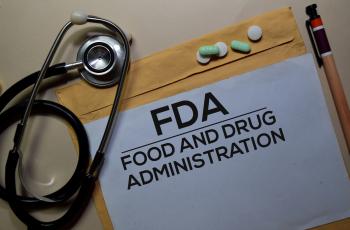A New NIH Institute Working to Transform Diabetes
President Biden proposed a new agency within the NIH geared to developing new therapies for diabetes. Read below to find out what the new health agency could contribute to previous diabetes prevention and treatment efforts.
The White House has officially launched the Advanced Research Projects Agency for Health (ARPA-H) website, which outlines the goals for a new health agency. During his first joint session with Congress in April, President Joe Biden announced his plan to launch ARPA-H “to develop breakthroughs to prevent, detect, and treat diseases like Alzheimer’s, diabetes and cancer.” The budget proposal for the new agency will be included in the next infrastructure bill, set to be brought to the Senate floor next week.
According to the White House’s Office of Management and Budget, the agency would be focused on innovation in health research and expediting scientific breakthroughs in diabetes. A majority of the funds for ARPA-H would be used for research on disease prevention and treatment development. The proposed $6.5 billion annual budget would increase the funding for the National Institutes for Health (NIH), which would oversee ARPA-H, to $51 billion for the 2022 fiscal year. ARPA-H’s mission includes addressing health equity and reducing health disparities across the US. The president’s budget proposal for ARPA-H needs to be approved by Congress and it has garnered bipartisan support from several policymakers.
While the ARPA-H seems like a promising initiative for the future of diabetes, many challenges remain. For instance, the White House has yet to provide adequate information on the agency’s approach to tackling diabetes and how it might differ from previous successful projects discussed below. Likewise, no detailed strategy has been developed on how it would pursue health equity and reduce racial health disparities that exist among people with diabetes.
The government has offered a couple of high-level directives for potential ARPA-H projects related to diabetes:
- create highly accurate, accessible, and easy-to-use blood glucose monitors; and
- engage community health workers and telehealth technology to overall improve how routine medication is taken.
We are hopeful for the success of ARPA-H and eagerly await news of its progress and details about how it will operate. As a platform committed to changing the course of diabetes, diaTribe Change fully supports a greater national focus on improving diabetes prevention, treatments, and developing cures.
Here is how the NIH has historically supported diabetes research and innovation:
The NIDDK
The National Institute of Diabetes and Digestive and Kidney Diseases (NIDDK) is the fifth largest among the 27 institutes within the NIH. The NIDDK supports research in, and education for, some of the most demanding and costly chronic diseases in the US. While the NIDDK encompasses several different diseases, diabetes is a significant part of its work. The work of the NIDDK will continue, as the ARPA-H supplements the institute with a more focused vision.
Budget
Diabetes takes up a relatively small percentage (about 3%) of NIH funds. Across all NIH institutions, it accounted for an estimated $1.2 billion in funding in 2021. Additionally, the NIDDK supports medical research largely through funding, of which 80% is awarded through grants to researchers across the US. These researchers work to find therapies that combat diabetes and their associated complications.
Main Projects of the NIDDK
There are four main project areas related to diabetes that the NIDDK has continuously supported.
- Diabetes Prevention Program (DPP): The DPP was a major research initiative that explored the prevention of type 2 diabetes. It showed that high-risk individuals can potentially prevent type 2 diabetes through certain lifestyle changes, focusing on diet and exercise, and by taking metformin. Through the DPP, which ran from 1996-2001, and the Diabetes Prevention Program Outcomes Study (DPPOS), significantly more participants have been shown to delay the onset of type 2 for at least 15 years compared to those who took a placebo. The program has also proven to lower healthcare costs and reduce the risk of diabetes-related complications. The DPPOS is currently investigating whether the DPP helps to lower rates of heart disease and cancer.
- Blood Glucose Control Studies for Type 1 Diabetes: DCCT and EDIC
- Diabetes Control and Complications Trial (DCCT): The DCCT studied the relationship between blood glucose levels (A1C) and the development of certain diabetes-related complications, such as eye, kidney, and nerve disease. The DCCT lasted from 1983-1993 and showed that the 1,000+ individuals who kept normal blood glucose levels significantly reduced their chances of these complications.
- Epidemiology of Diabetes Interventions and Complications (EDIC): EDIC is the follow-up study to DCCT and has tried to understand the long-term effects of diabetes on the body and whether early blood glucose control may lower the risk of diabetes complications. So far, EDIC has shown that such treatment significantly lowers the risk of eye, kidney, heart, and nerve diseases.
- Type 1 Diabetes Special Statutory Funding Program: This program supports and funds research on the prevention and cure of type 1 diabetes and associated complications. It contributes to the work of exploring type 1 cures, preventions, and treatments through research and clinical trials. Click here to find out more about the specific projects that the Special Diabetes Program has helped support.
- Health Information Center: In addition to the previous scientifically focused project areas, the NIDDK publishes online information on diabetes for anyone looking to better understand the disease. This information is from NIDDK research, reviewed by doctors and then published here to enhance public knowledge on diabetes and its complications.
With its efforts, people with diabetes have increasingly been able to live healthier, more hopeful lives. However, we need an increased national commitment to diabetes prevention, treatments, and cures for people with type 1 and type 2 diabetes.
We are encouraged by the announcement of the ARPA-H and its potential to develop diabetes-related treatments and to address the overwhelming health disparities among people with diabetes. diaTribe calls on both houses of Congress to fully fund this proposed agency. We will keep our community informed of ARPA-H updates.


